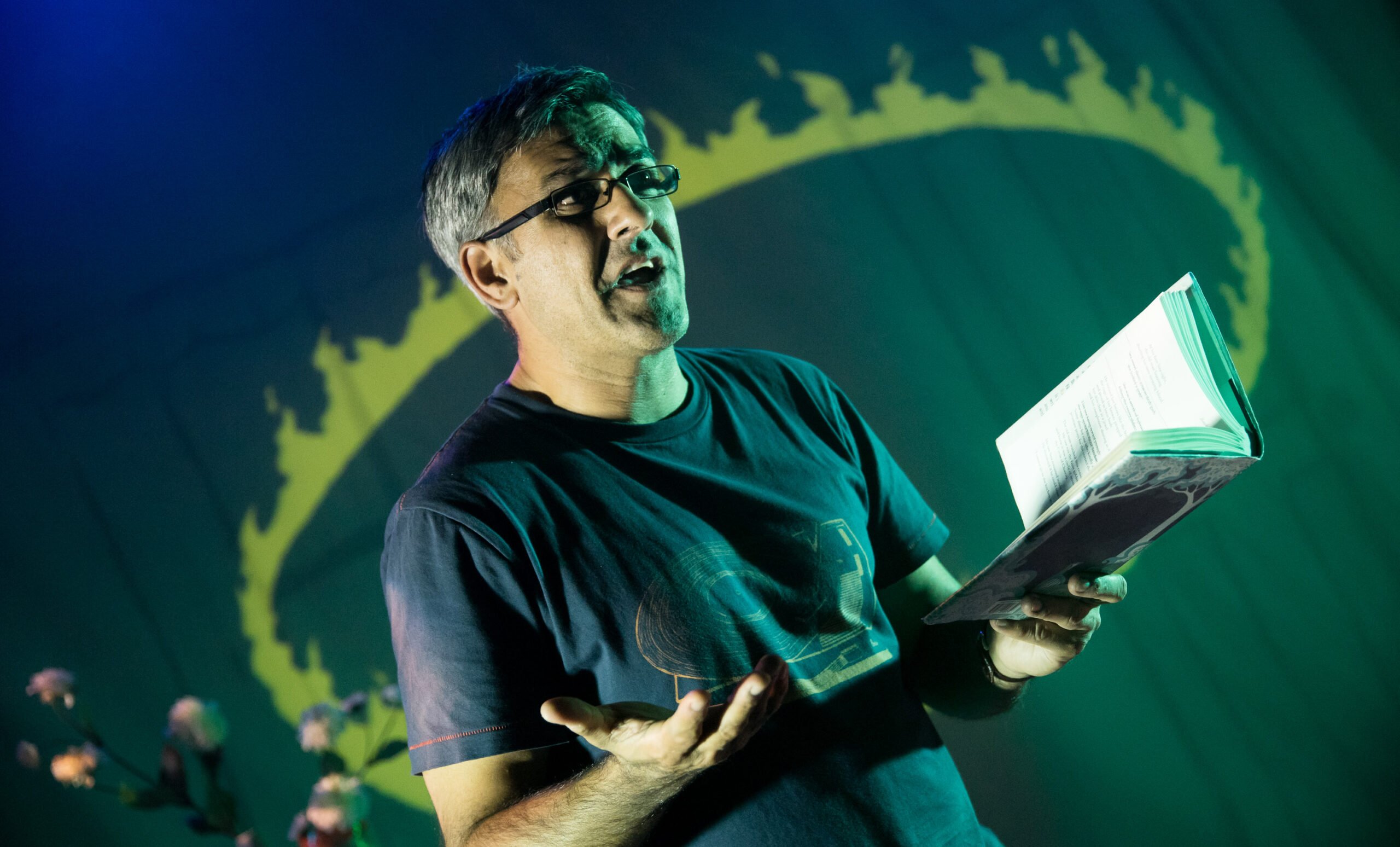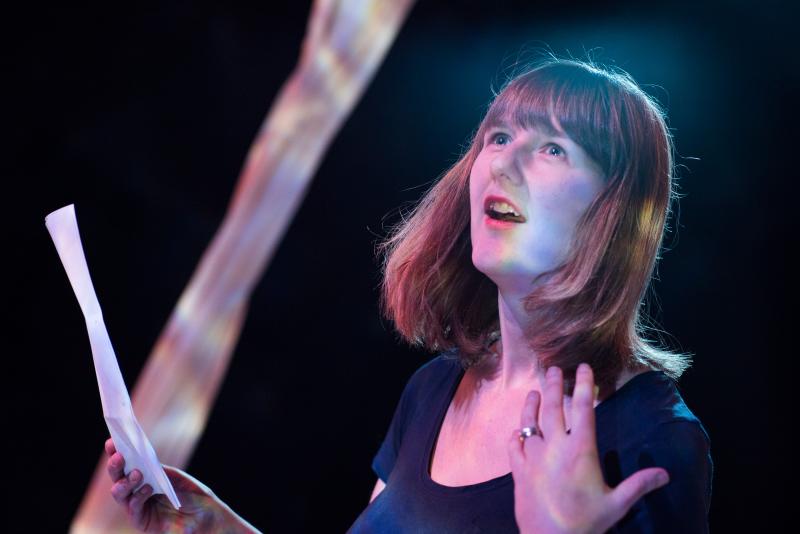
Poet Daljit Nagra in Jaybird Live Literature’s ‘The Retold Ramayana’
Photo: Marcos Avlonitis
How I reacted to… a change in the funding climate
When project funding slowed after the financial crash, Jaybird Live Literature was unable to put on the technically complex poetry shows it was known for. Julia Bird explains how it adapted its work to stay in business.
Jaybird Live Literature was a company formed before the crash, a time when lots of cash (relatively speaking) was available to aid small arts companies in their experiments with new ideas and fresh formats, and for venues with a hunch to splash out on their shows. We made lots of touring poetry shows in those early years, combining poetry with tricks of the theatrical trade – including pyrotechnics, projections and sound design – to present work in mainly non-literary settings. Reactions from funders, writers, venues and ticket-buyers were positive, and there was an enthusiastic audience for our work.
The challenge
When the funding climate changed, working in this way was no longer possible. Our early shows needed a transit van full of tech and a fully equipped theatre to play out, and that became a prohibitively expensive way to take to the road. We’re also a very small company – one part-time member of staff and a handful of regular freelancers – so the options to grow or diversify our products were limited. Project-by-project arts council support for our work had always been generous, but increased pressure on the Grants for the Arts fund and venues under their own financial constrictions meant that we had to be inventive in order to keep making the work we wanted to make.
How I solved it
Put simply, we looked at the strategic audience development needs of the literature sector and asked ourselves what we could do as a small company to address them. Our small size makes us nimble, and even though we’re not a National Portfolio Organisation, we know our Goal 1s from our Goal 5s, and are fully committed to the Creative Case for Diversity.

We adapted by beginning to provide a flexible-by-design artistic product to assist larger companies and venues with very specific audience development goals. Instead of making inventive, intriguing shows designed for anyone with the faintest glimmer of literary interest, we started to build similar shows but for particular demographics. We used to offer a show for sale to theatres and arts centres, take it or leave it. Now we form partnerships with venues, festivals and regional literature development agencies in advance of any funding applications, and build new shows designed to appeal to the specific audiences that they are trying to develop.
Our last two touring shows demonstrated this approach in action. We made a one-man adaptation of Daljit Nagra’s poetic reinvention of The Ramayana, which he had recently published with Faber, and a one-woman version of Clare Pollard’s new translation of Ovid’s Heroines (Bloodaxe). Both shows had full and pocket versions, so they could fit in fully equipped theatres and also the yurts, synagogues and village halls we visited in collaboration with festivals and agencies. Daljit’s show was built to appeal to those with an interest in British Asian culture, Clare’s to a young female audience.
A programme of post-show discussions devised in collaboration with our venue partners further focussed attention on specific audience groups. General audiences also attended, but we know our focussed approach worked from the post-show analyses of our audience make-up. Numbers for our targeted groups increased.
Currently, we have just reached the end of the research and development phase for what I hope will be our next show, one which will feature young poets on the stage, and will focus on the interests and concerns of a 16-25 year old audience. Generation Z is a beleaguered generation, labouring under particular social, educational and mental health pressures that were not experienced to the same degree by the generations preceding them. Our aim is to provide an entertaining and beautiful show which says the route to adulthood is a tricky one, but the right poem at the right time can sometimes work like a map.
Building on the approach we took with those last two shows, we are making this new show in a modular fashion so we can flex and fit to audience needs wherever we find them. School audiences will want a product that ties in with classroom concerns and we have brought in specialist poetry educationalists to provide relevant resources. Literature festivals and RDLAs will want show-related participation activities designed to work with their existing young writers and readers groups, and we will tailor workshop sessions to fit. Individual young writers in the audience will want a way to connect with the themes of the show, and there will be writing challenges and competitions connected with it.
By aligning ourselves closely to the strategic audience development needs of our partners and venues, we hope we are going to make it easier for ourselves to connect with the individuals in the auditoriums.
Julia Bird is founder and Director of Jaybird Live Literature.
jaybird.org.uk
Tw @jaybirdlivelit
FB facebook/jaybirdliveliterature
Join the Discussion
You must be logged in to post a comment.